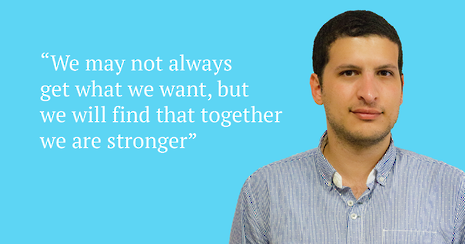The EU amplifies Britain’s global voice
The EU referendum: student perspectives

One of the most poignant chapters in To Kill a Mockingbird begins with the phrase: “Atticus was feeble”. This is uttered by his young daughter, Scout, who feels that with the passage of time he has lost his previous vitality and is sinking into an unavoidable decline. It seems that Brexiters also feel Britain is feeble. They feel powerless in the face of Brussels. They feel that they cannot project power as effectively abroad and feel shackled to the Eurocracy. They want to ‘make Britain great again’.
The solution, they perceive, to Britain’s faiblesse, is to sever ties with the EU. Alone, they perceive, this island of 65 million people can better engage with the rest of the world and become stronger. But there are numerous foreign policy and security challenges which we may have to deal with in the future: a resurgent and volatile Russia; rumblings of discontent by China in the South China Sea; and the ongoing crises in Iraq and Syria. Britain could be directly or indirectly threatened if these situations escalate.
To this, some might say that the best option is to go it alone. But we no longer have the power to effectively do this. One may argue that NATO already serves the purpose of fostering defence cooperation, but NATO is subservient to US interests, which might not be the same as European interests. One solution to this conundrum is a European army and border force. With a combined defence, and an army drawn from a pool of 450 million people, we can project power beyond the borders of Europe. We are unlikely to ever go to war alone again, and the experience of French officers in the British army has been positive so far.
Although the idea of a European army is anathema to Brexiters, it is time for a paradigm shift. We must realise that we can deal with future security threats much more effectively within a European framework. The fiasco over the last year with the large inflows of refugees has already prompted a response. Plans exist to establish a European border agency, which will have the power to deploy its members without the consent of a member state. This can help against recalcitrant members such as Greece.
What I propose is not only to remain in the EU but also to strengthen our role within it. To make a positive case for more Europe, it would be good to co-opt the Brexiters’ language. I am aware that currently the idea of a common army is pie-in-the-sky. This is a way in which we can strengthen Britain, not by disengaging from the EU, but by intensifying our involvement. Britain has always acted as a brake on European integration. Nevertheless, we are one of the major countries of the EU. Imagine a British army officer in charge of a European army. Imagine Britons helping to process the arriving refugees and tackle the refugee crisis in the context of a European border agency. We can share costs of developing technology, and each country can bring its own brand of expertise to make us strong again. We may not always get what we want, but we will find that together we are stronger.
 News / SU reluctantly registers controversial women’s soc18 December 2025
News / SU reluctantly registers controversial women’s soc18 December 2025 Features / Should I stay or should I go? Cambridge students and alumni reflect on how their memories stay with them15 December 2025
Features / Should I stay or should I go? Cambridge students and alumni reflect on how their memories stay with them15 December 2025 News / Dons warn PM about Vet School closure16 December 2025
News / Dons warn PM about Vet School closure16 December 2025 News / Cambridge study finds students learn better with notes than AI13 December 2025
News / Cambridge study finds students learn better with notes than AI13 December 2025 News / Uni registers controversial new women’s society28 November 2025
News / Uni registers controversial new women’s society28 November 2025









